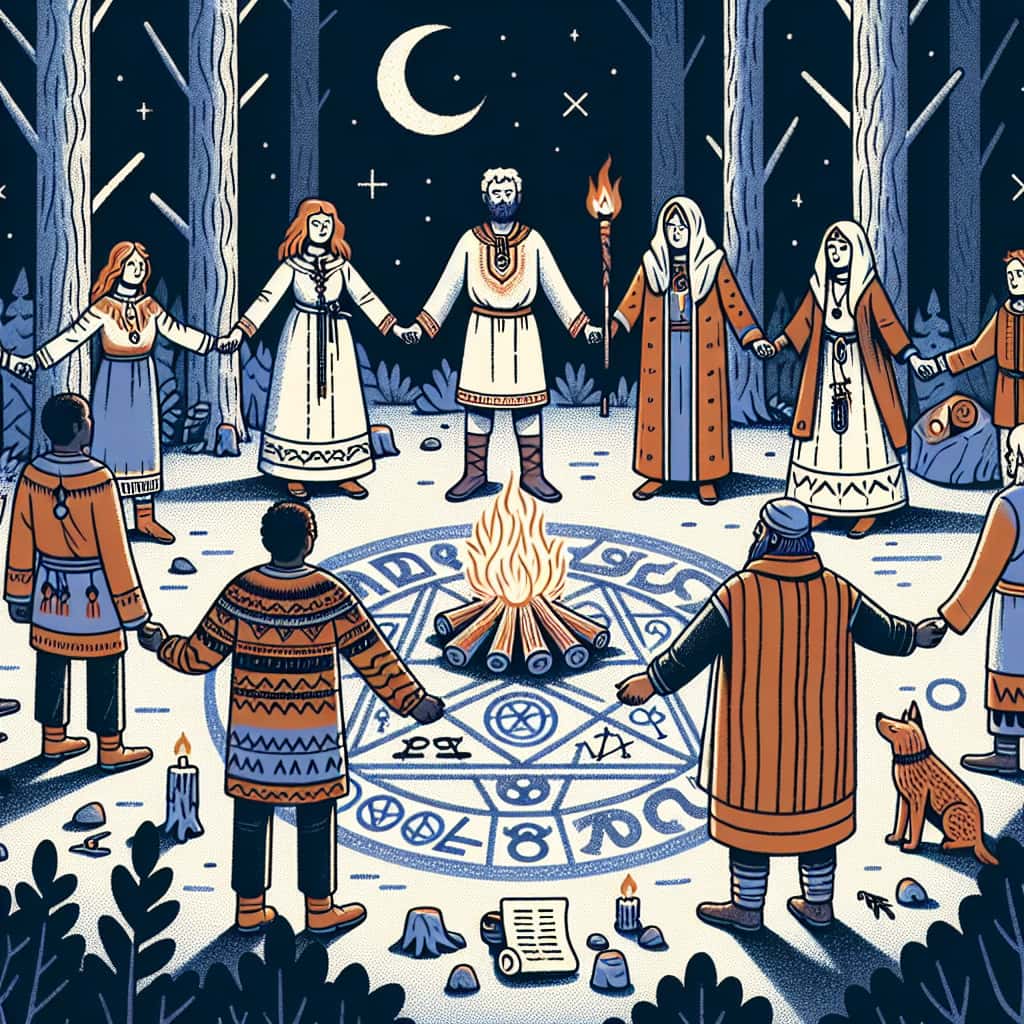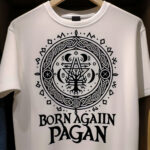Paganism is an ancient religious tradition that has been practiced by many cultures and communities around the world for thousands of years. It is a polytheistic religion that reveres multiple gods and goddesses, and often includes nature-based spiritual practices, rituals, and beliefs. A subset of Paganism is the practice of Pagan Cults, a term which can be used to describe certain spiritual groups, organizations, and gatherings that practice Paganism. In this article, we will explore what Pagan Cults are, their history, and what beliefs and practices they share.
A pagan cult is an organized group of people who practice a religion based on pre-Christian, nature-based beliefs. Pagan cults often involve rituals, ceremonies, and festivals that involve worshipping gods, goddesses, and other spiritual entities. Paganism is an ancient belief system that has been around since the Stone Age.
Paganism is a broad term that encompasses a range of beliefs and spiritual practices, including Wicca, Druidism, Asatru, and Heathenry. It is often associated with polytheistic religions, as well as animism, which involves the belief that all natural objects and forces have their own spiritual essence.
What Are the Beliefs of Paganism?
Paganism is a polytheistic religion, meaning it believes in multiple gods and goddesses. Pagans often view these deities as being connected to the natural world and the cycles of life. They also believe in the power of magic and the ability of humans to influence the world around them through rituals and spells.
Paganism is based on a reverence for nature and a deep respect for the environment. Pagans believe in living in harmony with the natural world and strive to protect it from destruction. They also uphold the concept of balance and harmony in life, emphasizing the importance of maintaining a healthy relationship between the physical and spiritual realms.
What Practices Are Common in Paganism?
Pagans practice a variety of rituals and ceremonies. These rituals can involve offerings to the gods and goddesses, the use of magical tools such as wands and crystals, and the chanting of ancient chants.
Paganism also includes a variety of festivals and holidays. These celebrations often involve honoring the gods and goddesses, celebrating the changing of the seasons, and honoring the cycle of life. Many pagans also celebrate the solstices and equinoxes, which are times when the day and night are equal in length.
What Is the Role of the Priest in Paganism?
In paganism, the role of the priest is to serve as a leader and guide for the community. The priest is responsible for leading rituals and ceremonies and for acting as a spiritual guide for the community. The priest is also responsible for teaching the beliefs and practices of paganism to new members.
What Is the Difference Between Paganism and Wicca?
Paganism and Wicca are often confused with one another, but they are actually two distinct belief systems. Paganism is an umbrella term that encompasses a range of beliefs and spiritual practices, while Wicca is a specific religion within the pagan tradition.
Wicca is a modern religion based on ancient pagan beliefs and practices. It is often referred to as “the Craft” and involves the worship of a Goddess and a God, as well as the use of magical tools and rituals. Wicca is also characterized by a strong emphasis on feminist values, environmentalism, and personal responsibility.
What Is the Relationship Between Paganism and Christianity?
Paganism and Christianity have a long and complicated history. In the early days of Christianity, pagans were often persecuted by the Church and their beliefs were seen as heretical. In recent years, however, the two religions have developed a more tolerant relationship, and there is now more dialogue and respect between the two faiths.
The two religions still differ in their beliefs, however. Christianity is a monotheistic religion that believes in one God, while paganism is polytheistic and worships multiple gods and goddesses. Christianity also emphasizes the importance of living by a set of moral and ethical guidelines, while paganism has no set morality or code of conduct.
Conclusion
Paganism is an ancient belief system that has been around since the Stone Age. It is a polytheistic religion that emphasizes the importance of nature and the environment. Pagans practice a variety of rituals and ceremonies, and many also celebrate the solstices and equinoxes. The role of the priest is to serve as a leader and guide for the community, and the relationship between paganism and Christianity has become more tolerant in recent years.
In conclusion, pagan cults are an important part of our cultural heritage and offer a unique spiritual experience. They are based on ancient beliefs and practices that are still relevant today and can be found in many different countries and cultures. While they may not be as widely accepted as other religions, they can still provide a sense of spiritual fulfillment and connection to the divine. As with any religious or spiritual practice, it is important to do your research and make sure you are comfortable with the beliefs and practices of the cult before joining.





